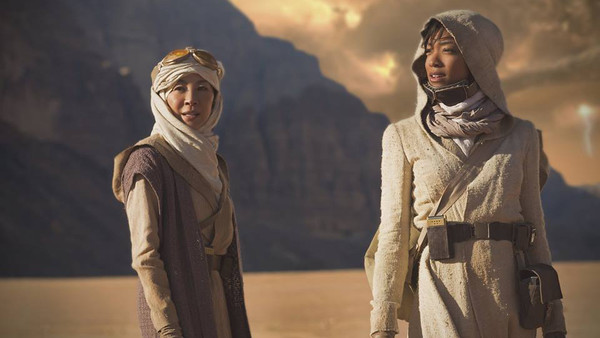Star Trek: Discovery - 8 Reasons Why It's The Best Series Since TNG
8. It Boldly Proclaims The Series' Ideology

Although we've yet to see a Star Trek series shirk the values of Roddenberry's original programme, it is true that they've been omitted from the foreground of the franchise in recent years. Star Trek: Beyond did a good job of galvanising this tenet however, and Discovery takes it and turns it up a whole other notch altogether (sans Beastie Boys accompaniment, sadly).
Star Trek was and always will be a show rooted in the values of equality and humanism. When the original series made the airwaves in the sixties, it did so during a time where East was pitted against West (Chekov's nationality was no coincidence), and where discrimination both racial and sexual was codified into US law. Roddenberry saw his show as a vehicle to criticise bigotry and to instil in the genre a forward thinking progressiveness that, for some reason or another, some Trekkies are yet to buy into.
This vision would be further realised in Deep Space Nine, where Avery Brooks' Benjamin Sisko became the franchise's first African-American lead, and in Voyager, where Kate Mulgrew's Kathryn Janeway became the first female captain to lead a Star Trek series. Discovery follows this approach with Sonequa Martin-Green's Michael Burnham, a lieutenant commander in Starfleet who was raised as a Vulcan by Spock's father, Sarek, and the series is stronger because of it.
Then there's the very thorough analysis of Starfleet protocol in the pilot, as well as the nods Fuller et al. planted that allude to the humanist inflections of Roddenberry's original concept. It's very much a Star Trek show through and through, and that, while being a standard most Trek media should strive for, is a noteworthy aspect indeed.